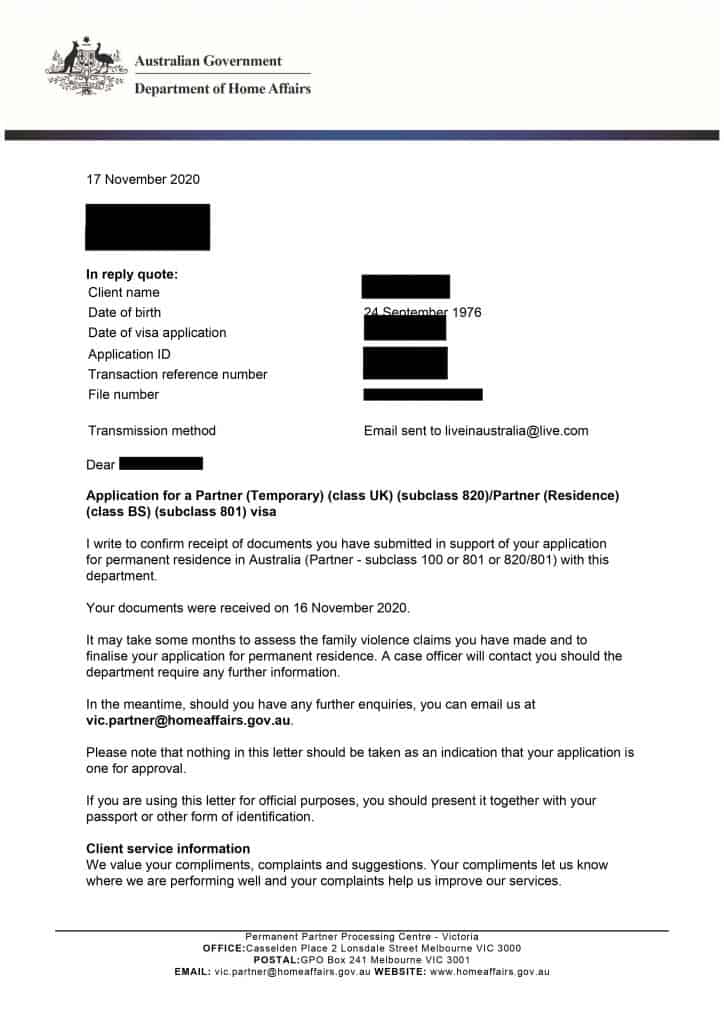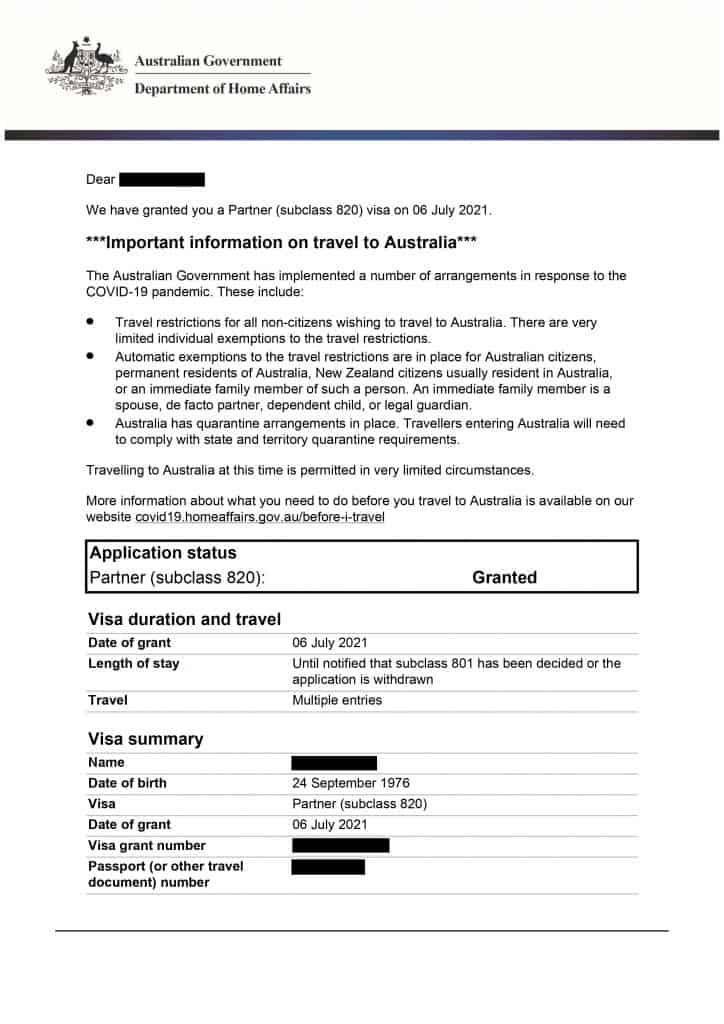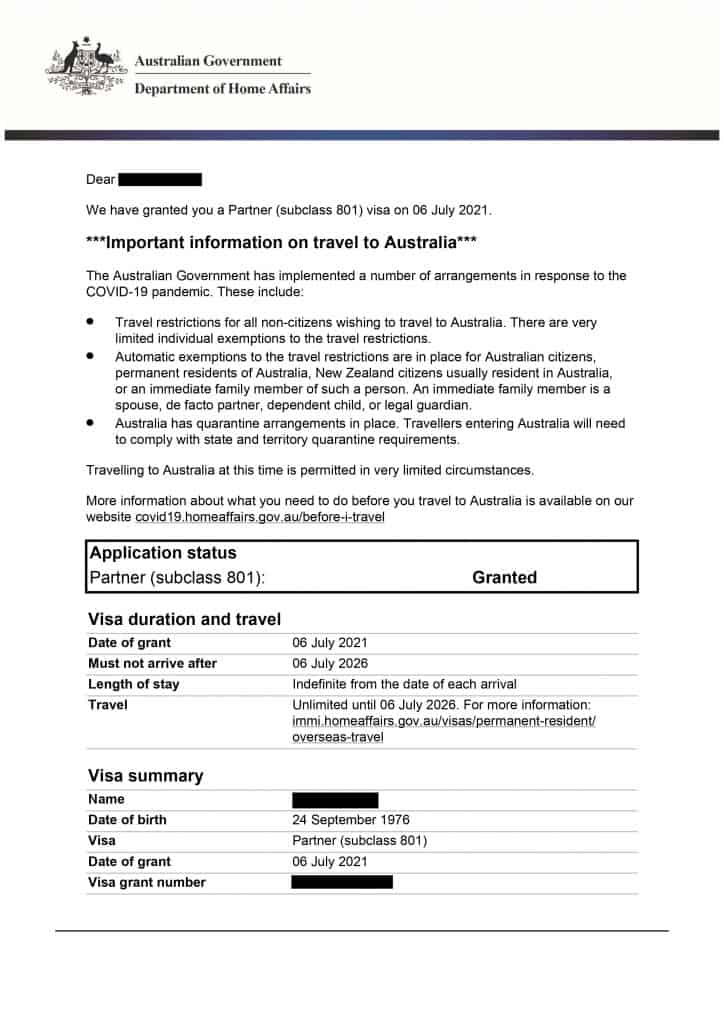
Family Violence & Your Partner Visa
Family Violence & Partner Visa: What will become of your temporary Partner Visa if your relationship breakdown due to Family Violence?
As a general rule of thumb for family violence & your partner visa, if you arrived in Australia on a Prospective Marriage Visa or Subclass 300 visa (click here to learn more), or an Offshore Partner Visa or Subclass 309 visa (click here to learn more), and your relationship breakdown because you suffered from family violence or domestic violence, you may still be able to apply for a permanent residence visa.
Similarly, if you have applied for an Onshore Partner Visa or Subclass 820 and Subclass 801 or Subclass 100 visa, the Family Violence & Partner Visa rule also apply.
When a relationship breakdown, 1 of the partner (spouse or de facto partner) may notify the Department of Immigration (Department of Home Affairs) that their relationship have broken down and would like to withdraw their sponsorship. The Department of Immigration will write to you, the visa applicant, to remind you that you must be sponsored and if your sponsor withdraw his or her sponsorship, you will no longer be eligible for the visa.

Relationship breakdown & Prospective Marriage Visa or PMV
If you have met someone while holidaying or in your home country and the other person proposed to you and sponsored you to come to Australia to get married, you usually apply for a Prospective Marriage Visa or PMV or Subclass 300 visa.
What will happen if we got married but our relationship broke down?
After you have arrived in Australia on a temporary Prospective Marriage Visa or Subclass 300 and within 9 months you got married. Later your relationship breakdown because you or a member of your family who has made a combined application with you, or a dependent child of your partner, or a child from your relationship with your sponsoring partner, suffered family violence committed by your partner.
You can still apply for the Onshore Partner visa or Subclass 820 and Subclass 801 visa if you have suffered from Family Violence.
We got married after my Prospective Marriage Visa ceased and later our relationship broke down due to family violence
You can still apply for the Onshore Partner visa or Subclass 820 and Subclass 801 visa.
What is family violence?

Generally, family violence is a conduct, can be actual or threat, towards:
- you; or
- a member of your family; or
- a member of your sponsor’s family; or
- your property; or
- the property of a member of your family; or
- the property of a member of your sponsoring family.
Family violence is a conduct that causes you to reasonably fear for, or to be reasonably apprehensive about, your own safety or wellbeing.
Family violence does not have to be some sort of physical harm toward you. It can be an abuse, for example, psychological or financial abuse toward you.
May still be eligible for a Partner Visa if 1 of the following applies:
- Your sponsor died and you have not entered into another relationship, and you have maintained close business, cultural or personal ties with Australia; or
- You are on a Prospective Marriage Visa and you married your sponsor but before applying for a Partner visa you or a dependent child suffered from family violence caused by your partner; or
- You married your sponsor after your Prospective Marriage Visa ceased and you or a dependent child suffered from family violence before you applied for a Partner visa; or
- There is a child to the relationship.

Temporary visa (eg Subclass 820) granted after family violence is proven

Permanent visa (eg Subclass 801) is granted
Family or domestic violence is a complex issue and problem, you should engage the services of an immigration lawyer to help you apply for a permanent Partner visa (click here to learn how an immigration lawyer can help you to become an Australia permanent resident).
Australian migration law is complex and difficult to understand, contact our immigration lawyer for a consultation (fee applies) regarding your visa or click here to learn more. You may also refer to our FAQs for answers regarding visa application or visa cancellation by clicking here.

 041 222 4020 or WeChat: AUDvisa
041 222 4020 or WeChat: AUDvisa
This article is not intended to be or taken as migration legal advice. The author of this article disclaims any liability for any action or omission on the information provided or not provided in this article. You should always consult an immigration lawyer or a registered migration agent to form an informed opinion on your immigration matter.



